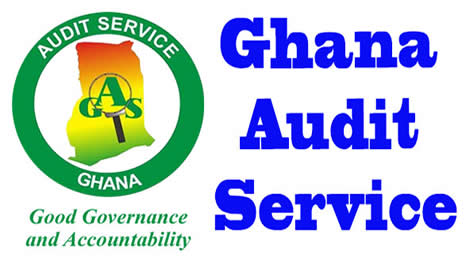Article: 2016 GHS 2.1 billion financial irregularities drops to GHS 1.1 billion in 2021, are we making progress?

The 2021 Auditor General’s (A-G) report indicates clearly that financial irregularities have significantly dropped from GHS2,165,542,368.14 in 2016 to GHS1,080,931,937.00 in 2021, representing over 50% reduction from the 2016 figure to the 2021 figure.
Irregularities generally do not represent monies being necessarily stolen or having disappeared. It could also mean a discrepancy detected at the time of audit which is yet to be reconciled. The law provides for the officer responsible to be surcharged where the irregularity cannot be cured by proper reconciliation.
The Auditor General’s report identifies 7 essential areas where irregularities are usually recorded. They are tax, cash, debt/loans/ advances, payroll, stores/procurement, rent and contract irregularities.
Irregularities represent discrepancies which may be down to all manner of factors, including corruption, inefficiency and administrative errors.
Cash
Over the last 6 years, the A-G’s report has constantly shown that cash irregularities record the highest figures among all 7 thematic areas where irregularities are identified, but registered a significant drop in 2021.
In 2016, cash irregularities were GHS2,053,622,215.68. In 2017, cash irregularities saw a drastic drop to GHS190,560,599,736.33. In 2018, it increased to GHS388,925,019.94 but declined again to GHS276,624,480.40 in 2019.
In 2020, cash irregularities dropped significantly GHS34,034,697.72 and increased marginally to GHS45,763,607.00 in the year 2021.
Tax
Tax irregularities also grew to become the highest component, overtaking cash. But, it is also dropping but in a checkered manner.
Apart from 2016, where it stood at a meagre GHS42,866,490.70, it rose hugely to GHS655,599,736.33 in 2017, GHS4,788,284,799.00 in 2018 and dropped significantly to 2,666,743,134.56 in 2019.
The A-G report indicates that in 2020, tax irregularities dropped even further to GHS694,386,436.15 but went up marginally to 989,026,225.00 in 2021.
Payroll
Payroll irregularities as at 2016, stood at GHS4,281,994.51. However, it declined significantly in 2017 to GHS1,776,893.00 and rose slightly to GHS1,875,347.00 in 2018. In 2019, payroll irregularities dropped considerably to GHS469,953.00.
However, in 2020 and 2021, payroll irregularities have recorded sizeable increases, GHS4,487,494.84 and GHS5,601,611.00 in that order.
Debts, loans and advances
Debts, loans and advances in 2016, chronicled GHS6,775,974.47 in irregularities. It took a huge drop in 2017 to GHS2,695,601.00 and further dropped to GHS594,889.00 in 2018 and GHS201,000.00 in 2019.
In 2020, debts, loans and advances irregularities saw a quantum leap to GHS1,108,660,041.95 but declined drastically to GHS30,758,576.00 in 2021.
Stores and procurement
Stores and procurement irregularities recorded its highest figures in 2016 of GHS35,940,445.43 and GHS41,668,682.00 in 2017. In 2018, it declined sizeably to GHS6,823,337.00 but rose again to GHS20,604,593.00 in 2019.
As at 2020, stores and procurement irregularities halved from its 2019 figure to GHS10,667,174.60 and in 2021, recorded a massively significant decline to GHS511,569.00. It is one area where corruption, specifically in the procurement of goods, is recorded.
Rent
Rent irregularities in 2019 stood at GHS43,467,634.19, being the highest figure recorded in the last six years (2016 to 2021). In 2016, it was GHS9,049,212.49 but declined considerably to GHS94,472.00 in 2017.
In 2018, it stood at GHS3,941,756.00. However, in 2020, it reduced to GHS29,576,414.36 compared to the 2019 figure and further dropped to GHS7,710,925.00 in 2021.
Contract
On contract irregularities, another key area where corruption is most prominent, some GH13,006,034.86 was recorded for 2016. In 2018, contract irregularities stood at GHS5,598,252.00 and in 2019, a paltry GHS77,093.00.
In 2020, there was a big jump to GHS171,364,190.23. But in 2021, a rapid reduction was again recorded bringing the figure down to GHS1,599,424.00.
Overall picture
Overall, total irregularities recorded in 2021, stood at one billion, eighty million, nine hundred and thirty-one thousand, nine hundred and thirty-seven Ghana Cedis (GHS1,080,931,937.00) compared to the total in 2016 which stood at two billion, one hundred and sixty-five million, five hundred and forty-two thousand, three hundred and sixty-eight Ghana cedis, fourteen pesewas (GHS2,165,542,368.14).
Clearly from the records as supplied by the Auditor General, from 2018 where the total irregularities stood at GHS5,196,043,399.94, there has been a significant decline since.
This is evidenced by the GHS3,008,187,888.15 recorded in 2019, GHS2,053,176,449.85 captured in 2020 and the GHS1,080,931,937.00 for 2021.
The total value of irregularities reported last year was GHS1,080,931,937 from the previous reported amount of GHS2,053,176,449.8 in 2020.
This indicates a GHS972,244,512.85 (representing 47.35%) reduction in the value of previously reported infractions and a cumulative average reduction in the value of infractions from GHS5,196,043,399.94 in 2018 to GHS1,080,931,937 in 2021, representing a 79.19% reduction.
Tax irregularities constitutes 91% (GHS989,026,225) of the total value of the infractions reported in 2021. Further analysis of the trend of the financial impact of the reported irregularities between 2016 and 2020 shows a declining trend from 2018 to 2021.
For some of the financial infractions indicated in the Auditor General reports which represent real money that can be recovered, the evidence suggests that steps have been taken by the Ghana Revenue Authority over the period and continuous efforts are being made to recover such amounts.
For instance, tax irregularities have declined from GHS4,788,284,799 in 2018 to GHS989,026,225 in 2022. A careful observation also shows that some of the infractions reported are administrative and procedural in nature that may not indicate loss of monies to be recovered.
Financial and tax experts explain that this usually happens in some cases on the account of inadequate engagement with the auditors during the audit field work to explain some key issues or in some cases the non-provision of some key audit evidence required by the auditors during the audit.
This they indicate may either be due to misfiling of such documents which subsequently gets found after the audit or the indifference with which most MDAs attach to audit in general.
But, one major concern, which Occupy Ghana in particular has been campaigning against is the apparent lack of willingness to surcharge those responsible for these irregularities, unless due to a discrepancy that has since been corrected.





